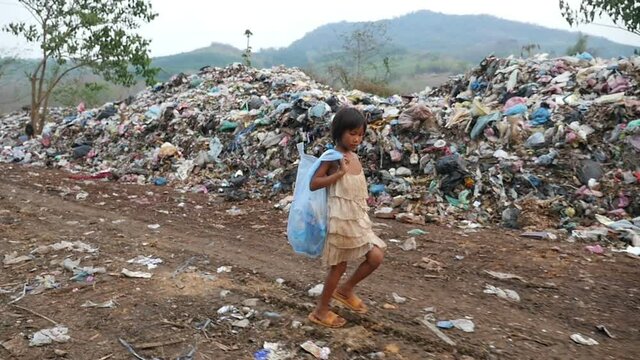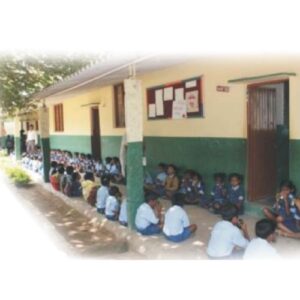Feed India | Stopping Food Waste to Feed the Hungry!
In a country of 1.39 billion people lies a paradox of abundance and scarcity that conveniently coexist in a heartbreaking dance. India, with its vibrant culture and rich heritage, faces a silent enemy within its borders: Food Wastage. According to the Food and Agriculture Organization (FAO) of the United Nations, nearly 40% of food produced in India goes to waste, costing a whopping ₹92,000 crores every year. That means millions of families go to bed hungry every day in our country! And that number is a staggering 189.2 million!
And if you are wondering from where is the most of the food being wasted? It’s your kitchen!
Pause for a moment and let that sink in.

In a land where countless children go to bed with empty stomachs, enough food is squandered annually. How can this be?
According to a 2022 report by the MCAFPD, an Indian household wastes approximately 50 kilos of food per person annually. India contributes to almost 7% of the global waste. Nearly 70% of it comes from Indian households while food services contribute 26% & retail outlets at 13%.

Despite the rise in the per capita income of India, ‘hidden hunger’ still affects millions of children and women. It is astounding that 16 percent of the population is undernourished, whereas 53 percent of women aged between 15 and 49 are anemic. Additionally, over 30.9 percent of children are stunted, thus, they become susceptible to diseases like malaria, pneumonia, and diarrhea which are major causes of infant death in the country.
However, the causes of the crisis are quite a number and they are concerning. The matters such as limited storage facilities, degradation of infrastructure, and non-operative supply chains result in perishable commodities like fruits, vegetables, and dairy products failing to get into the hands of the needy. Moreover, loss after harvest, overproduction, and market failings act as the next layers of compounding the issue. This creates a mesh of rejects that deprive the people who are in need of the commodities from getting a balanced diet.
One of the most alarming is the role of human behavior in benefiting this tragedy. In our quest for convenience and indulgence, we forget the value of sustenance. Notably, in places of high population density and advancement, where time is money, the only priority is to stay convenient, and of course, wastage is tolerated.


At a time, where established systems are letting us down, the Yuvalok Foundation has become a beacon of hope for the underprivileged children in India. Often, children from the most economically disadvantaged backgrounds are forced to abandon their education due to social pressures, lack of resources, and the need to earn a living at a young age. To ensure these children can continue their education uninterrupted, Yuvalok and their dedicated team provide daily mid-day meals. This comprehensive approach not only addresses hunger but also contributes to the overarching goal of providing education for all!
Ultimately, the fight against food waste is not just a call to action—it is a call to our shared humanity. It serves as a reminder that even the smallest of actions can have a profound impact on the world around us. Let us choose the path of empathy and responsible stewardship, recognizing that our choices can shape a better future for all. Let us stand together, hand in hand, and forge a future where no child goes to bed hungry, and no food goes to waste.
You contributions can save the lives of thousands of children from hunger!


Recent Comments